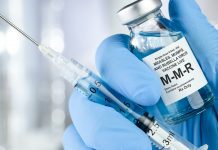
A study conducted in Australia has revealed that programmes built to identify psychosis symptoms early significantly improve outcomes for young people.
Novel research by Orygen – Australia’s centre of excellence in youth mental health – has illuminated that identifying psychosis symptoms early through dedicated programmes delivered in Australian headspace centres improved young patients’ clinical and functional outcomes.
The research, published in the Australian and New Zealand Journal of Psychiatry, was funded by the Australian Government through the Australian Early Psychosis programme.
Pinpointing psychosis symptoms
To conduct their investigation, the Orygen team analysed data of 1,235 young people in Australia who attended the headspace Early Psychosis programme for treatment due to them starting to develop psychosis symptoms. The individuals were put into two groups, those experiencing their first episode of psychosis (FEP) and those at a high risk of developing psychosis, termed ultra high risk (UHR).
After a six-month study period, the teams’ analysis demonstrated there was a considerable improvement in clinical and functional outcomes in both groups. Young people at UHR showed a more substantial reduction in psychological distress, whereas young people with FEP experienced a greater reduction in psychosis symptoms.
Orygen’s Dr Ellie Brown, who led the study, said: “We wanted to know how well early psychosis programmes work for young people outside of a highly controlled research environment. This research showed us that they do work, and that recovery is possible.
“We were pleased to see recovery illustrated so clearly in the very positive outcomes for the young people who had received care at the headspace Early Psychosis programme.”
Headspace programme
The headspace Early Psychosis programme is based on the early intervention model developed in the early 1990s by Orygen for treating young people experiencing psychosis. The programme involves supporting a young person at the earliest possible point that their psychosis symptoms arise.
Dr Brown commented: “The programme provides evidence-based psychological treatments, medication, and support to help the young person get well and engage in school or work. Involving family members is also a key component of care.
“These programmes offer young people with complex mental ill-health a sustained, holistic and evidence-based model of care. Our results show that early psychosis programmes work – they’re helping young people get better.”
Furthermore, the study’s results also illuminated that after a young person’s mental health improved, there was a steady, linear improvement in how they functioned daily.
“We asked questions about friendships, study and work. This is important because young people in these services are no different to young people anywhere. They want to work; they want to study, and they want to live the life that they aspire to,” said Dr Brown.






















